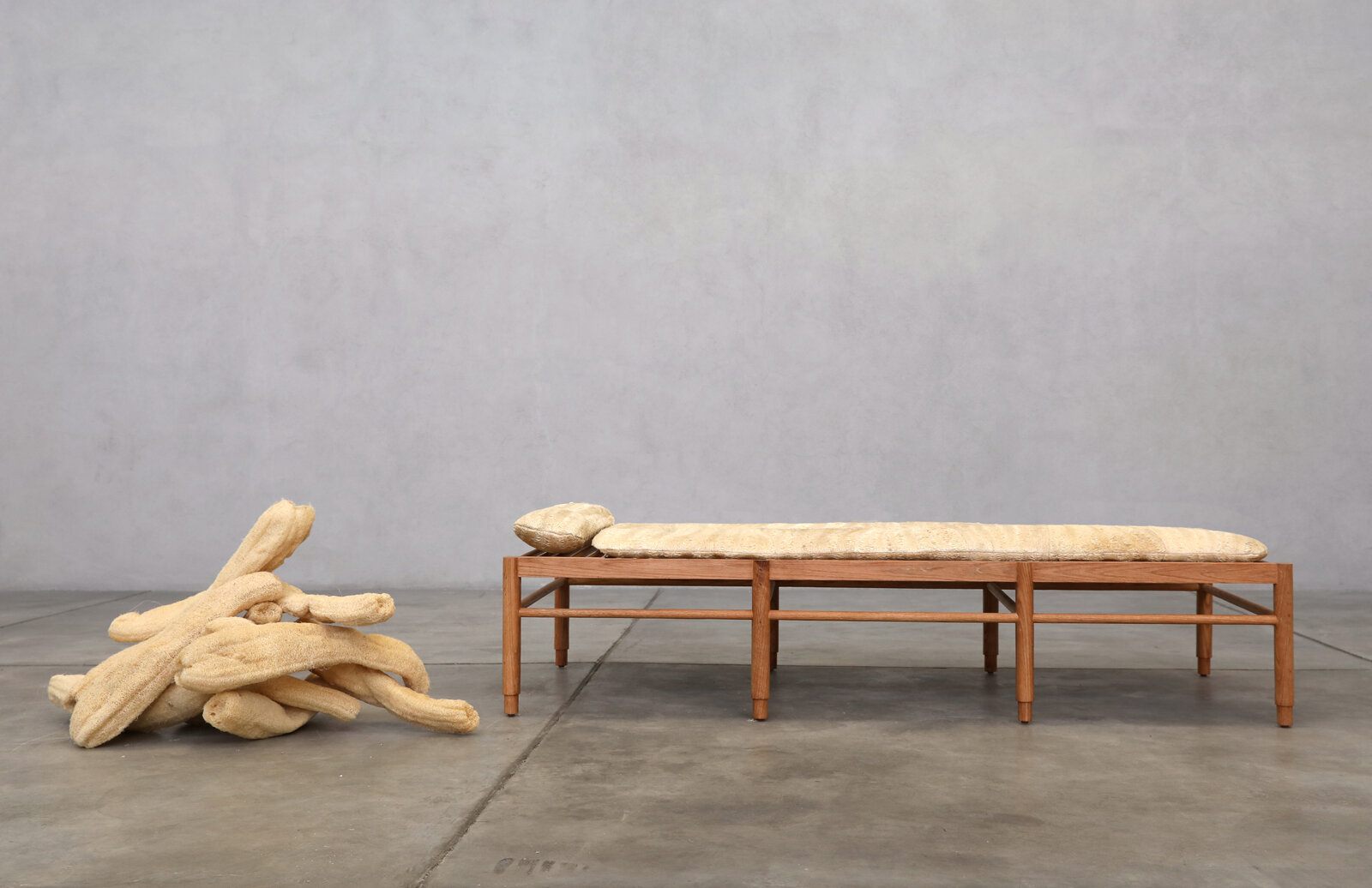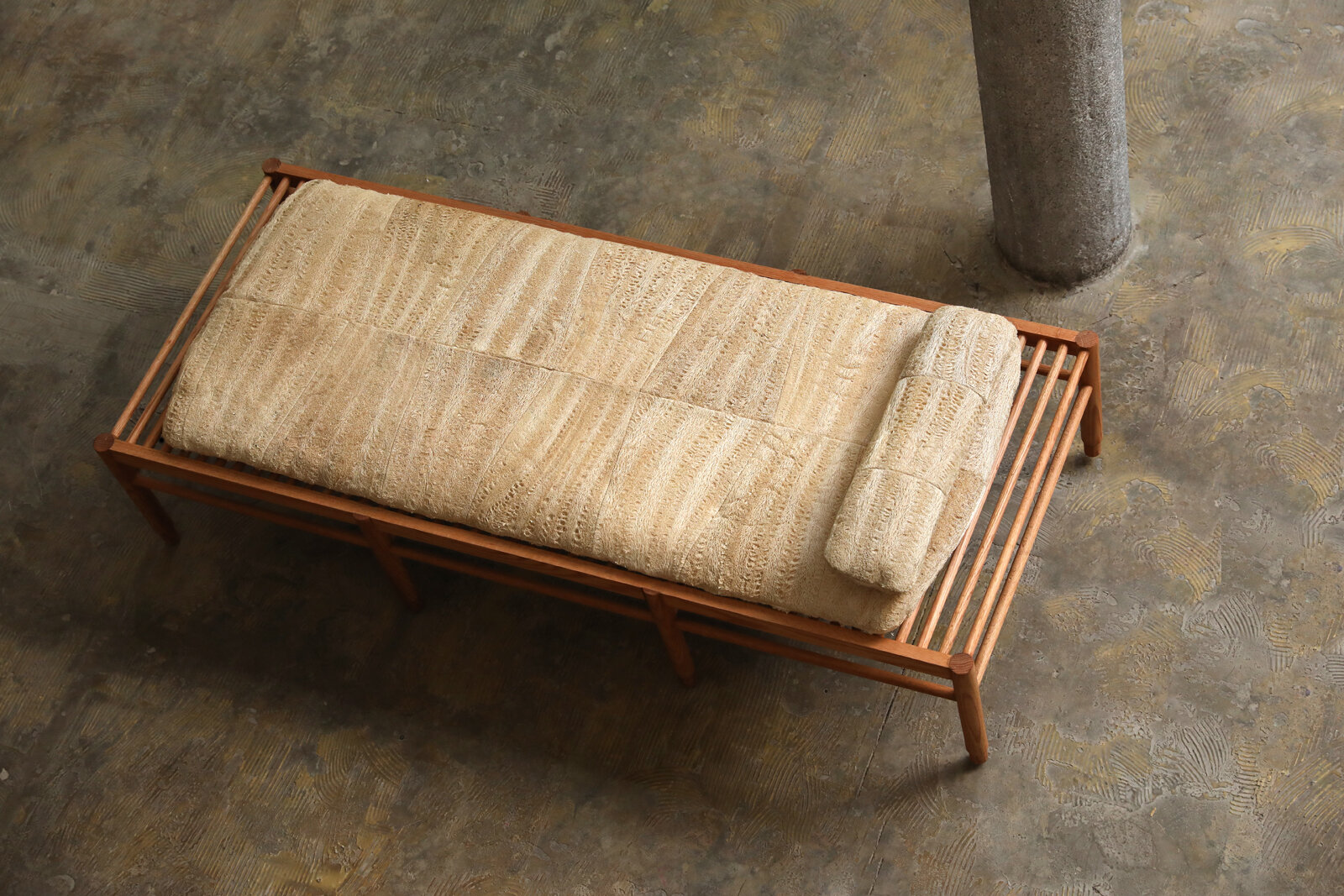In another of Fernando's projects, entitled Lufa Series, the designer explores the possibilities of Loofa - a fruit found on a tropical climbing vine, also known as “the sponge cucumber”. The dried fruit creates a network of interlacing fibers that are commonly used as bath sponges, but not for much else. Through exploration and tests, the project aims to produce different objects with the material; analyzing various qualities of the fibers, such as lightness, translucency, heat insulation, texture, shock absorption, and others. By demonstrating the material’s possibilities, and researching its potentiality, there is new significance and value to the Luffa plant. This is shown in the creation of more diverse objects in this collection; such as a room divider, a daybed, a table, a lamp, some vases/bowls and an armor.








